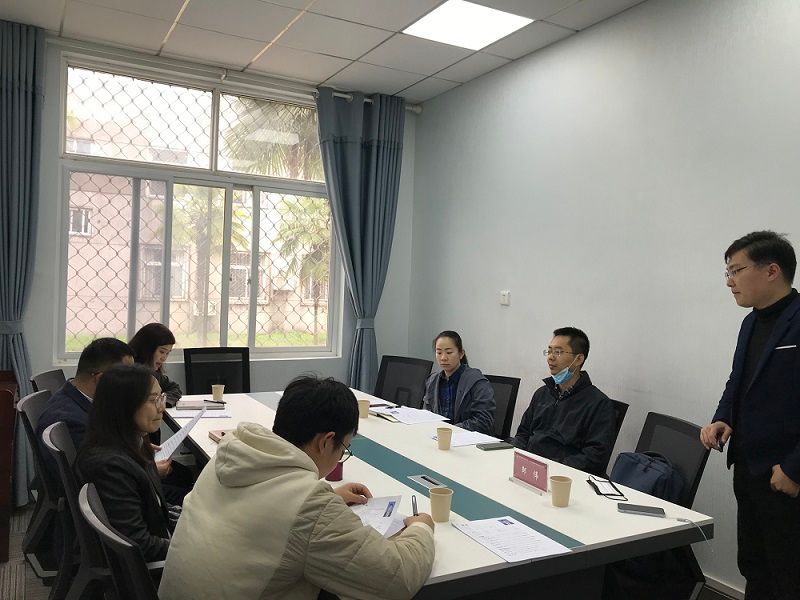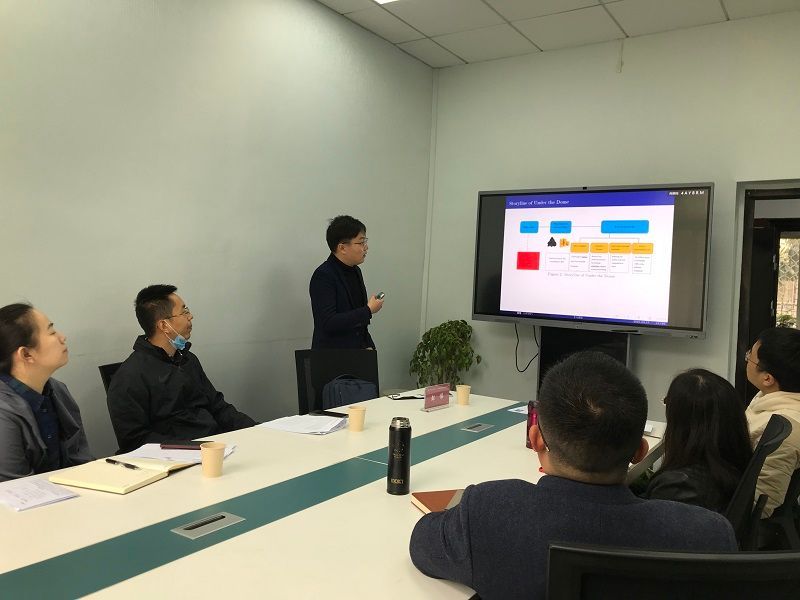On 17 May 2021, the 9th Xixian Forum of Income Distribution and Public Finance co-organized by the School of Public Finance and Taxation of ZUEL and the Innovation Base for Income Distribution and Public Finance, was successfully held in Conference Room 127 of Wenqin Building. As the keynote speaker of the forum, Dr. Zou Wei, jointly trained by Sun Yat-sen University and the National University of Singapore, gave an academic talk entitled Attention Online, Abatement Offline: A National Experiment on Social Media in China. The forum was chaired by Professor Lu Yuanping, Executive Deputy Director of the Innovation Base for Income Distribution and Public Finance. Zhang Jinke, Vice Dean of the Institute of Social Sciences, Zhao Ying, Associate Professor of the School of Public Finance and Taxation, and researchers Dr. Wan Xin, Dr. Zhang Fan and Dr. Liu Erpeng participated in the forum.

During the forum's exchange presentation, Dr. Zou Wei examined the impact of exogenous social media shocks on corporate and government behaviour, using the dissemination of a famous environmental documentary in 2015 as a backdrop. Dr. Zou presented his research in terms of literature and background, hypothesis and empirical strategy, empirical results, analysis of impact mechanisms, and key findings. The rapid development of social media as an important information dissemination channel has effectively increased public awareness and participation in social issues. This paper investigates empirically the impact of social media on corporate pollution emissions, based on a comprehensive dataset of corporate pollution emissions, as well as data related to various social media activities and government regulatory actions. The results show that public awareness of the documentary and extensive engagement on social media has led to significant reductions in pollutant emissions from local businesses. In conclusion, the environmental documentary is a more flexible way to raise social awareness of environmental protection, thus achieving the effect of promoting better environmental quality.

In closing, Dr. Zou summarises and expands on his findings that monitoring environmental pollution issues through social media channels such as microblogs and government message boards can effectively reduce corporate environmental pollution problems. In the meantime, to respond positively to the strong public demand for environmental protection issues, social media activities will also prompt local governments to increase penalties for environmental pollution and improve the legal system for environmental protection.
